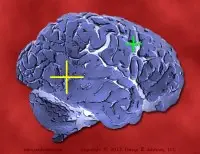Software Softening Our Brains?
- 186 x 3,086 = ?
- 196,452 ÷ 2,568 = ?
Why? For the same reason we exercise. Modern conveniences and technology require less muscle. Same occurs with our brains. We don’t have to train our minds to remember things because apps in smart phones and software in computers do it for us. We also don’t have to remember or figure directions. GPS software does that too.
Our sixth grade teacher had us go to the blackboard and those who scribbled through a problem like above the quickest scored a point for their team. Half of my classmates could get through one in less than forty-five seconds. Expanding our examination, research shows map users were more likely to recall how to get to their destination than those using GPS’s. More recently, Nicholas Carr’s “The Great Forgetting.” (The Atlantic, November 2013 edition) begins with pilots mishandling emergency situations because they had forgotten basic maneuvers. The planes do almost all flying now. Additionally, Carr cites:
- Problem solving experiments in which those using more advanced software did better initially but those using more rudimentary ones excelled later because they caught onto concepts better.
- Accountants using upgraded audit software became poorer risk assessors than those using older versions.
- Younger Intuit hunters using GPS’s for hunting on ever-changing ice caps suffered more hunting accidents than older hunters relying upon winds, snowdrift patterns, animal behavior, stars and tides.
If we want to become better problems solvers, mental exercise, in the form of difficulty, helps us. Software only goes so far, perfect systems never completely defining our imperfect world. Consequently, more technological integration means more hidden, unaccounted imperfections and potential failures. We, our minds, need to be alert.
So, before we claim our memories are fading from age, perhaps we should interrogation of our smart phones first.



Hi Mike,
I enjoy your website and blog.
I agree with you about the”softening of the brain” notion. There is a preponderance of the evidence to support the hypothesis. About 15 years ago there was a multi-state study done about how rote memorization of such things as the multiplication tables helps form the neural pathways for later higher-level cognitive functions. The study also looked at how studying music in the developmental years did the same thing.
The study was assembled by the principal investigator from Memphis Tennessee and as a result became known for a short while as the Tennessee Studies. I don’t know what the official title is. The peer evaluation was the study was flawed: inadequate control of some variables.
Regardless, it was a significant inquiry (flawed in some areas or not) that generally supported your hypothesis. As we get more sophisticated in our methodology, we are likely to see a clear demand to better manage the technology we foisted on ourselves by opening Pandora’s Box.
As another piece of anecdotal evidence, my college seniors uniformly exhibit a lack of rich and deep thinking. In my creative thinking skills courses, more and more of my students are getting low to average grades. It is more than ignorance. There is a fundamental shift in cognitive skills. I have been in this business for 28 years. The shift is worrisome.
— Mike Fox, International Center for Studies in Creativity
Thank you, Mike, for stopping by, visiting to leave your comment and giving me some more clues on where to find some additional research on this. As it turns out, I’m going to publish a quasi-sequel since I’ve learned that the U.S. military doesn’t rely on computer simulations to do much of their creative strategizing. They are much more low-tech than that. The reasons are interesting and say much about the creative process and its application to business strategizing.
As for my anecdotes, they are much more personal. It was about eight years ago I noticed my math skills were deteriorating. I found myself unsure with the basics in long multiplication and division. Those spreadsheets and calculators were becoming a bit too convenient! So, I keep a pad nearby to occasionally do some by hand. Of course, I do use the calculator to check my work.
It’s good to hear from you, Mike. Thank you again for visiting. ~Mike
On of my versions of this theme is “expensive tools can’t cure fools” — that is, software doesn’t replace work and developed skills. In other words, you can’t buy pre-packaged competence.
On the other hand, you have to know when to use a flint knife or an SQL query.
I understand the gist of what you’re saying, Matera. How do you incorporate your thoughts into the theme of technology replaces jobs?